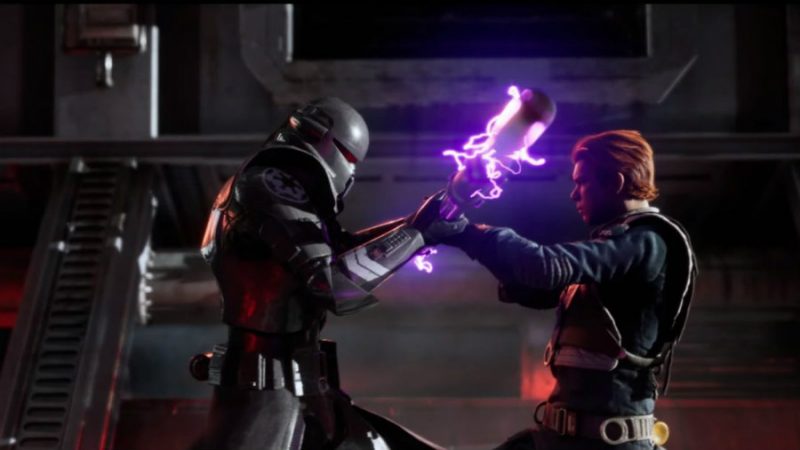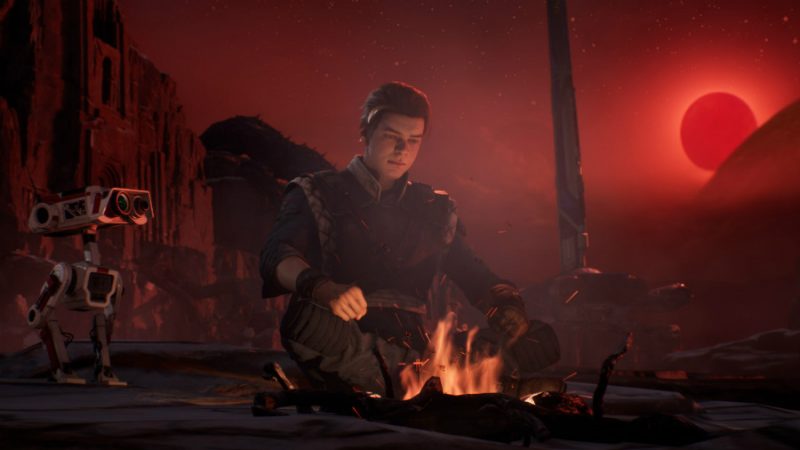Single-player games have had a tumultuous time recently. As odd as that may sound, companies, particularly EA (Electronic Arts), have been pushing the idea that single-player games just aren’t as popular as they used to be. There has been a heavy shift towards open-world games and battle royales, but even still, many gamers have been left frustrated by a lack of support for single-player titles. Though the debate still rages on, EA made their stance clear when they shut down Visceral Studios and cancelled their single-player Star Wars project.
As misguided as many may find his comments, from a business perspective it makes even less sense. EA took a gamble on single-player games like Mass Effect: Andromeda, which had a ‘turbulent and troubled development’ and was released to widespread criticism. But yet, the game was likely a financial success, being mentioned by Jorgensen himself as a “significant contributor” to a “new record” of digital net sales of $681 million in the company’s last quarter of 2017.
However, Star Wars: Battlefront II, a game which had a disappointing and short single-player campaign, with a heavier focus on multiplayer had disappointing sales. “…we had expected to sell about 8 million units, but we fell short by less than 1 million,” said Jorgensen in an investor conference call.

Now, this isn’t the groundbreaking material that proves the superiority of single-player games. However, when you look at the sales of other single-player games such as God of War (which broke PlayStation 4 sales records with 3.1 million within 3 weeks) or The Last Of Us (having sold over 17 million copies by 2018), it’s hard to argue that single-player games are bad for business.
So Jorgensen’s comment about the cancellation of Visceral Studio’s Star Wars project being an economic choice and a lack of interest in linear games can be called into question. It seems evident that there’s still a lot of love for single-player and a lot of support (even if they are as criticised or controversial as Mass Effect: Andromeda).
However, EA has realised this. At least, I hope so. It may explain the unexpected unveiling of Star Wars Jedi: Fallen Order. Though it was always known for a while that a Star Wars game by Respawn Entertainment (the studio behind Titanfall and Apex Legends), for quite some time, its unveiling is unexpected in that it’s oddly reassuring.
Do you dislike the heavy use of microtransactions many games are plagued with nowadays? EA has promised no microtransactions at all. Are you concerned about another short single-player campaign? Stig Asmussen, director of Star Wars Jedi: Fallen Order has promised that will not be “a short adventure.” Do you find this sudden shift in attitude to single-player odd?
While it is true the industry does change a lot, Hennig’s comment, ‘It’s odd’, still rings true. EA may have perhaps recognised that single-player is here to stay, but Hennig has her own speculations. “I also think Respawn’s game has the benefit of being largely developed before they were acquired…” explained Hennig. She also went on to suggest that perhaps a change of management could result in the company’s new attitude to single-player.

“Both Patrick Soderlund and Jade Raymond have left in the meantime, and Laura Miele, who was the franchise general manager for Star Wars when I joined, is now in Patrick’s role. So I don’t have any insider knowledge, but there’s a lot of reasons they could have adopted a new attitude for this.” Patrick Soderlund was Executive Vice President of Worldwide Studios at EA and oversaw all game production. Jade Raymond was founder of Motive Studios and was in charge of Visceral Game Studios. Both made their departures in 2018.
It’s possible that a change in management contributed to a new way of thinking as Jade Raymond spoke glowingly about a more multiplayer approach to gaming.
If Raymond does truly see multiplayer as more engaging then it seems likely that a shift in management could be a reason for a shift in attitude. But, does that mean we can trust Star Wars Jedi: The Fallen Order? Well, I believe so, and I don’t think circumstances of the industry and management change would be enough. There has been a vocal outcry in support of single-player games, especially in response to EA’s previous stance, and that likely has had some impact.
The failure of Star Wars: Battlefront II (a short campaign and microtransactions) that possibly led to its lack of sales, are directly in contrast with Star Wars Jedi: The Fallen Order. It’s going to be long, it’s going to have no microtransactions, and hopefully that will result in it being good. At least that’s what it seems EA wants us to think.
“This is all speculation on my part…and there’s been a pretty public and vocal backlash against the idea gamers don’t want single-player finite games without all these extra modes. Of course they do, of course we do…” said Hennig.
Truthfully, I think the title could be trusted, hell I think it could even be a great game! But, I also think people should be aware that this might not be a change of heart for EA. This doesn’t suddenly mean single-player has become a priority for the company. In fact, it’s more likely that Star Wars Jedi: The Fallen Order will determine whether there’ll be a change of heart at all.
It may be EA’s last-ditch effort to try and see if times have truly changed and if single-player sticks. If it does, great, it could mean a much heavier focus on single-player and storytelling, exactly what many gamers have been craving. On the other hand, if it doesn’t, it just reaffirms EA’s past beliefs and we’ll likely not see a single-player Star Wars game from the company for a while.
Jorgensen may claim that people don’t like linear games as much as they do five years ago. Hopefully, Star Wars Jedi: The Fallen Order proves people still do. To that I say, Star Wars: The Fallen Order, may the force be with you.


